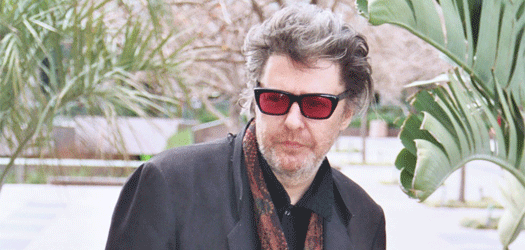|
I ran across a New York Times opinion article from 2007, posted by composer/guitarist Glenn Branca. The article was a list of 25 questions, created by Branca, addressed to composers (and musicians in general, I guess), on issues of contemporary classical music in the 21st century. The list of questions is based on the same idea as David Hilbert’s 23 mathematical problems published in 1900. I don’t think that’s an essential connection to make, but Branca mentioned it, so I figured I would include it here.
I think some of these questions are genuinely interesting and important for musicians (specifically composers) to ask themselves, but some of them are a little ridiculous, if not completely unnecessary. Also, and this may be a little harsh, but I feel like a lot of these questions are from the viewpoint of someone whose experience with contemporary music is mostly limited to the orchestral world, which I feel is problematic. But that’s a different discussion for a different time. Regardless, I enjoyed answering these questions and I’m interested to hear other people’s answers to the questions. Here’s the list, along with my answers: 1. Should a modern composer be judged against only the very best works of the past?
2. Can there be truly objective criteria for judging a work of art?
3. If a composer can write one or two or more great works of music why cannot all of his or her works be great?
4. Why does the contemporary musical establishment remain so conservative when all other fields of the arts embrace new ideas?
5. Should a composer, if confronted with a choice, write for the musicians who will play a piece or write for the audience who will hear it?
6. When is an audience big enough to satisfy a composer or a musician? 100? 1000? 10,000? 100,000? 1,000,000? 100,000,000?
7. Is the symphony orchestra still relevant or is it just a museum?
8. Is micro-tonality a viable compositional tool or a burned out modernist concept?
9. In an orchestra of 80 to 100 musicians does the use of improvisation make any sense?
10. What is the dichotomy between dissonance and tonality and where should the line be drawn?
11. Can the music that sooths the savage beast be savage?
12. Should a composer speak with the voice of his or her own time?
13. If there’s already so much good music to listen to what’s the point of more composers writing more music?
14. If Bach were alive today would he be writing in the baroque style?
15. Must all modern composers reject the past, a la John Cage or Milton Babbitt’s “Who Cares If You Listen?”
16. Is the symphony an antiquated idea or is it, like the novel in literature, still a viable long form of music?
17. Can harmony be non-linear?
18. Was Cage’s “4:33” a good piece of music?
19. Artists are expected to accept criticism, should critics be expected to accept it as well?
20. Sometimes I’m tempted to talk about the role that corporate culture plays in the sale and distribution of illegal drugs throughout the United States and the world, and that the opium crop in Afghanistan has increased by 86 percent since the American occupation, and the fact that there are 126,000 civilian contractors in Iraq, but what does this have to do with music?
21. Can the orchestra be replaced by increasingly sophisticated computer-sampling programs and recording techniques, at least as far as recordings are concerned?
22. When a visual artist can sell a one-of-a-kind work for hundreds of thousands of dollars and anyone on the internet can have a composer’s work for nothing, how is a composer going to survive? And does it matter?
23. Should composers try to reflect in their music the truth of their natures and the visions of their dreams whether or not this music appeals to a wide audience?
24. Why are advances in science and technology not paralleled by advances in music theory and compositional technique?
25. Post-Post Minimalism? Since Minimalism and Post-Minimalism we’ve seen a short-lived Neo-Romanticism, mainly based on misguided attempts to return to a 19th century tonality, then an improv scene which had little or nothing to do with composition, then a hodge-podge of styles: a little old “new music,” a little “60’s sound colorism”, then an eclectic pomo stew of jazz, rock and classical, then a little retro-chic Renaissance … even tonal 12-tonalism. And now in Germany some “conceptual” re-readings of Wagner. What have I left out? Where’s the music?
Well, there it is. Glenn Branca’s 25 questions and Jon Fielder’s 25 answers. I’d like to get a discussion going about this, for anyone interested in humoring me. Also, any reactions or feelings about the questions themselves would be an interesting discussion as well. Put your answers, comments, concerns in a comment below and let’s get a discussion going!
1 Comment
Jon
6/10/2015 08:52:05 am
I want to also include that I don't mean any disrespect to Branca with my answers. There were just a few questions I feel very passionate about, and some that I don't feel are really that necessary. Also, anyone not familiar with Branca's works for guitar ensembles (up to 100 guitars) should probably check those out.
Reply
Leave a Reply. |
The "Direct Sound" Page is dedicated to general blog posts and discussions. Various topics are covered here.
Full Directory of Articles |


